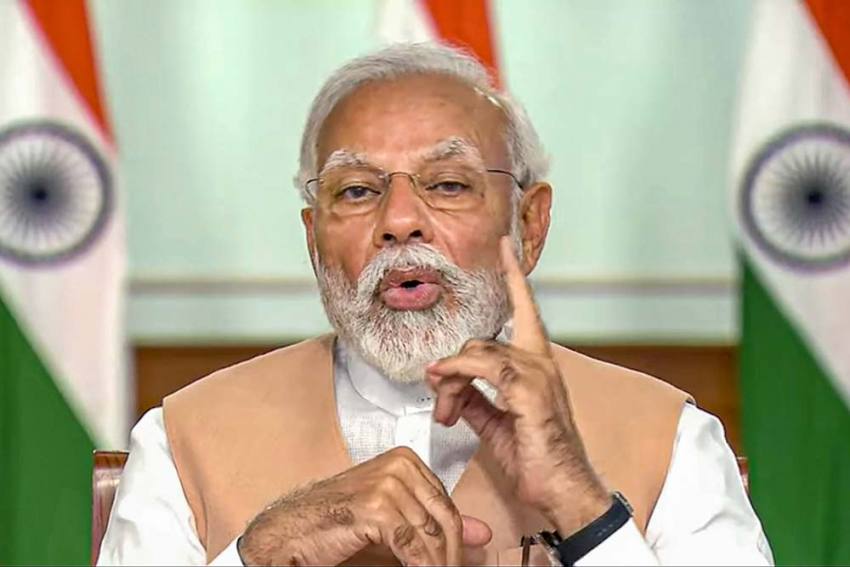PM Modi, is perhaps among the few, or the only world leader, who while immersed in handling the Corona challenge, has also kept articulating fundamental thoughts and ideas on a post Corona world and the role India would play in shaping it.
Prime Minister Modi’s call for an Atma Nirbhar Bharat – a self-dependent – India is not a claptrap, it is a call for a comprehensive civilizational self-renewal. It articulates India’s engagement with the world at a time when the contours and narrative of globalization is being sharply debated and examined. When public intellectuals are speaking of an unfortunate return to the fortress existence, when many are speaking of isolationism and a falling back upon oneself, Prime Minister Modi speaks of being self-reliant but not self-centered, and of a future which is about “togetherness and resilience.” He speaks of delineating India’s trajectory in shaping a post COVID19 world order.
PM Modi has also called for the need of a new globalization. This globalization, he has argued, needs to be human centered. This stands in clear contradistinction to the current narrative of globalization which has evolved over the last so many decades – a globalization which is primarily focused on homogeneity, is at times hegemonic and has manifested in some, a keenness towards exploitation and imposing uniformity. PM Modi, is perhaps among the few, or the only world leader, who while immersed in handling the Corona challenge, has also kept articulating fundamental thoughts and ideas on a post Corona world and the role India would play in shaping it.
His “Atma Nirbhar Bharat” vision, his call for being “vocal on the local” are part of that unbroken chain of thoughts. He firmly feels that India’s moment of shaping a new world order, post the pandemic has come. Indeed, the post-Corona world calls for a new world order. As thinkers and experts have indicated ad nauseam, never has the world since the Spanish Flu pandemic a hundred years ago, or since World War two, seven odd decades ago, seen such a reversal, such upheaval and overturning of most of our established notions and beliefs. The dominant structure and narrative of the current wave of globalization is under intense scrutiny and Modi’s call for a renewed look at globalization came early into the pandemic when most others were trying to fathom the extent of its impact on international dealings.
In a writeup towards the end of April and in his interactions with young professionals on the next major ideas which will shape the post COVID world, PM Modi had indicated how India, a youthful nation with the zeal for innovation can alter and re-structure the terms and framework of globalization. He had written about India emerging as a crucial supply-chain hub, “India, with the right blend of the physical and the virtual can emerge as the global nerve centre of complex modern multinational supply chains in the post COVID-19 world,” and had spoken of the need for “seizing the opportunity.” His call for being vocal on the local, thus, has given the first impetus towards seizing that opportunity. The emphasis on the “local” also rekindles our call to action whenever a struggle for our destiny has been in the offing. It is a call which has always galvanised our collective imagination, it is a call which has always remained intrinsic to the psyche of a free India. Despite facing decades of ridicule and misinterpretation, that sense has survived and has seen India emerge today as one of the leading start-up and innovation hubs globally. This call was also a defining dimension throughout our struggle for freedom.
The deeper import of PM Modi’s call, apart from the structures of realizing the programme of a self-dependent India, indicates to that role. In fact, most of our epochal thinkers, who articulated or envisaged a free India also spoke of her role in the world. They spoke of being nationalist and internationalists and negated a rootless cosmopolitanism, a “rootless universalism”, while also decrying a compartmentalized self-centeredness. They staunchly advocated the need for reviving and strengthening our cultural and industrial bases and genius, that would turn India into a centre of global transactions – ideational as well as material.
The narrative of the twenty first century being the Asian century, is taking shape, and in shaping the Asian century India, has begun to play a pivotal, defining and a civilizational role. When PM Modi said, that “India’s culture considers the world as one family, and progress in India is part of, and also contributes to, progress in the whole world” and “the world trusts that India has a lot to contribute towards the development of the entire humanity”, he is exactly reiterating our civilisational aspirations articulated, over ages, by some of the leading shapers of our collective destiny.
(The writer is Director, Dr Syama Prasad Mookerjee Research Foundation. Views expressed are personal)


